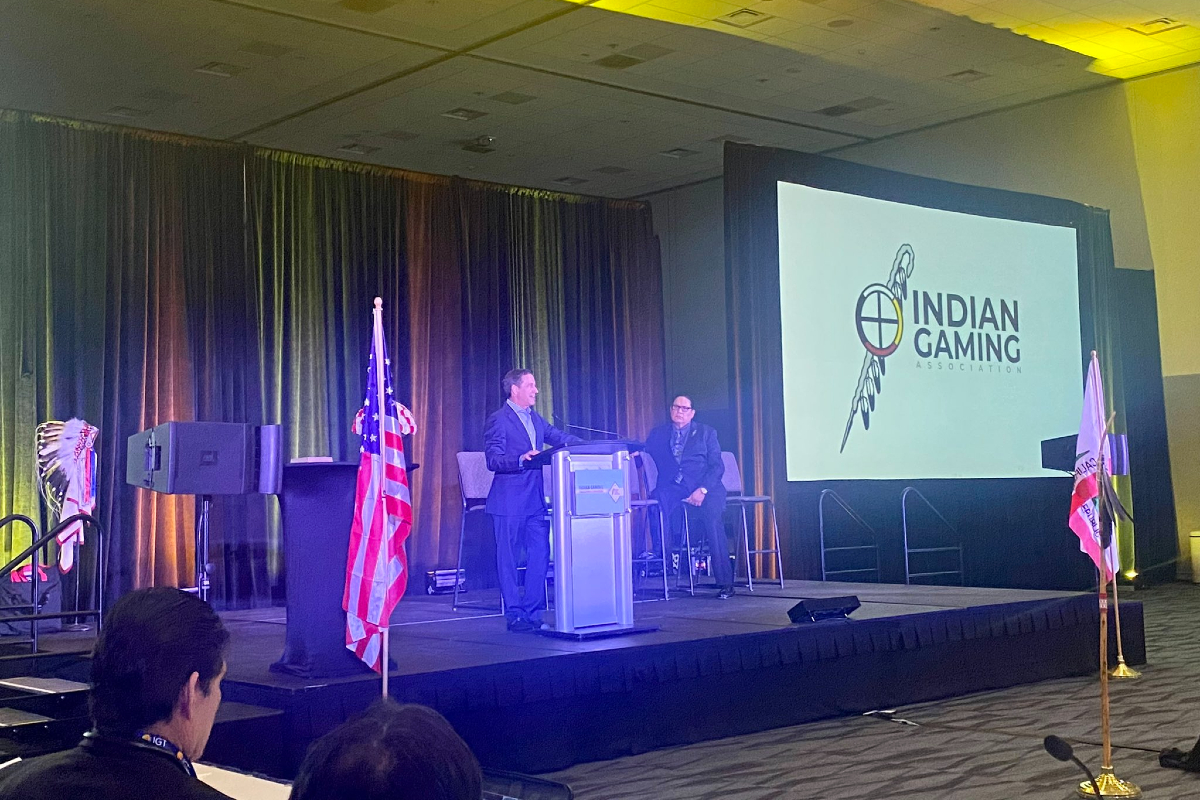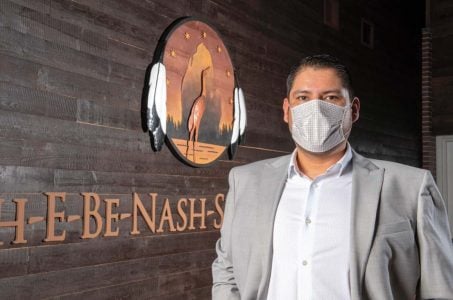National Indian Gaming Assn. Drops ‘National’ Amid Acronym Confusion
Posted on: April 22, 2022, 11:11h.
Last updated on: April 22, 2022, 01:09h.
The National Indian Gaming Association — long stylized NIGA — is dropping “National” from its name for seemingly obvious reasons.

Known simply as the Indian Gaming Association (IGA) moving forward, the group’s mission is to protect and preserve the general welfare of sovereign tribes conducting gaming operations to assure their self-sufficiency. IGA is also a de facto lobbying group that works with Congress and the federal government to promote policies that benefit and strengthen gaming tribes.
IGA wrapped up its annual tradeshow today at the Anaheim Convention Center in California. One of the dominant headlines from the four-day event is IGA stripping “National” from its organization. The decision restyles its acronym from NIGA to IGA.
“This has been in the works for a long time. The acronym just was not comfortable in the world we live in,” Ernie Stevens, Jr., IGA chair, told Native News Online.
People may misinterpret or even mispronounce our old acronym,” Stevens Jr. added. “We view it as a housekeeping item that we wanted to clear up. We never mispronounced our old acronym.”
The tribal gaming association maintained that its previous acronym was pronounced “ny-ga.”
New Identity, Same Powerful Organization
Founded in 1985, IGA is an inter-tribal association. Headquartered in Washington, DC, the Indian Gaming Association numbers more than 250 member tribes.
IGA tribes collectively own over 500 casinos and gaming properties across the US. Stevens, the association’s current leader, is a member of the Oneida Nation in Wisconsin. IGA members generated gross gaming revenue (GGR) of nearly $35 billion in pre-pandemic 2019. Tribal gaming win dropped to $27.8 billion in pandemic-stricken 2020.
While full-year 2021 Indian GGR has not yet been tallied and released publicly, the industry’s major tribes reported a considerable rebound last year. That would follow a similar trend experienced in 2021 from major commercial casino markets.
The American Gaming Association — the commercial casino industry’s chief lobbying trade group — said GGR hit a record $53 billion last year. However, a substantial portion of the record income was derived through online channels through iGaming and mobile sports betting.
Still, the AGA said 23 of the 34 states with commercial casinos experienced all-time revenue highs in 2021. All 34 reported increases from 2020, and 15 recorded gaming revenue better than their 2019 numbers.
Indian Gaming
The Indian Gaming Regulatory Act (IGRA), a federal law signed by President Ronald Reagan in October 1988, allows federally recognized tribes to conduct Class I and II gaming on their sovereign lands. Class I and II gaming includes bingo-based games, punch and pull tabs, and non-house-banked card games like poker.
Tribes must reach Class III gaming compacts with their home state governments for slot machines and banked games such as blackjack and roulette. Most states have agreed to allow such gaming for their federal tribes. But there are exceptions.
State governments that continue to block federal tribes from operating Las Vegas-style slots and table games include Texas, Alabama, South Carolina, and Virginia.
Related News Articles
Foxwoods Resort Casino Appoints First Tribal Member to CEO
Caesars Southern Indiana $250M Sale to EBCI Holdings Gets State Approval
Most Popular
The Casino Scandal in New Las Vegas Mayor’s Closet
LOST VEGAS: Wynn’s $28 Million Popeye
Sphere Threat Prompts Dolan to End Oak View Agreement
MGM Springfield Casino Evacuated Following Weekend Blaze
Most Commented
-
VEGAS MYTHS RE-BUSTED: Casinos Pump in Extra Oxygen
— November 15, 2024 — 4 Comments -
VEGAS MYTHS RE-BUSTED: The Final Resting Place of Whiskey Pete
— October 25, 2024 — 3 Comments -
Iowa Casinos Push Back Against Cedar Rapids Resort Pitch
— October 7, 2024 — 3 Comments
















No comments yet